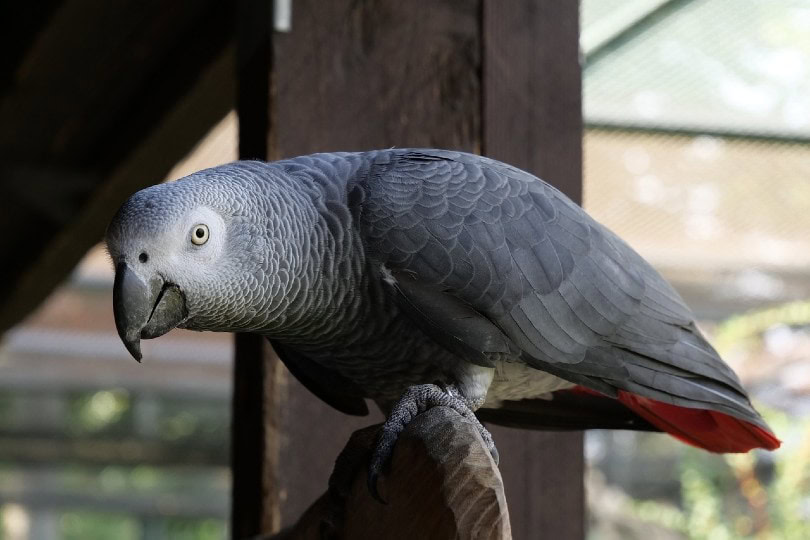Top 5 Essential African Grey Parrot Prices for 2025
As an exotic pet enthusiast, knowing the African grey parrot price is vital for your purchasing decision. The African grey parrot is renowned for its incredible intelligence and companionship, making it a coveted choice for pet owners. Understanding current prices and related costs can prepare you for a successful adoption or purchase. Let’s explore the African grey parrot market value in 2025, including price comparisons and essential tips for potential buyers.

African Grey Parrot Prices Overview
In 2025, the average price of African grey parrot ranges significantly depending on various factors, including age, breeding quality, and geographic location. The comprehensive market insights reveal a price spectrum that new owners should be aware of when planning for an African grey parrot purchase. Prices typically range from $1,000 to $3,500 for hand-raised specimens, with additional costs arising from adoption fees and care requirements.
Factors Influencing African Grey Parrot Costs
Numerous cost factors come into play when determining the **supreme African grey parrot cost**. Major influences include:
- Age: Younger birds, especially babies, can command higher prices due to demand and training potential.
- Breeder Reputation: Well-respected breeders ensure healthy birds and ethical breeding practices, contributing to higher prices.
- Location: Prices can vary by region, with urban areas often having higher costs compared to rural locations.
Understanding these factors can aid in budgeting and reaching an informed decision about your African grey parrot financial commitment.
African Grey Parrot Price Comparison
To help potential buyers, it’s essential to consider African grey parrot prices comparison. Here’s a brief guide:
– **Normal African Grey Parrots**: $1,000 – $1,500
– **Congo African Grey**: $1,200 – $2,200
– **Timneh African Grey**: $1,500 – $2,500
– **Show Quality Birds**: Up to $3,500 or more
– **Adoption Fees**: Generally between $100 to $300 from rescue organizations
This comparison offers a clear picture of budgeting and efficaciously planning your African grey parrot purchase.
Additional Expenses Related to African Grey Parrots
In addition to the initial purchase price, future costs are crucial for owners. This includes expenses associated with feeding, housing, and healthcare. Maintaining an African grey parrot doesn’t stop at just the purchase.
Feeding Expenses for African Grey Parrots
The ongoing feeding expense for African grey parrot ownership can range from $20 to $50 monthly, depending on diet quality. A balanced diet consists of high-quality pellets, fresh fruits, and vegetables, which contribute to their long-term health. Investing in premium food can lead to fewer health issues down the line, emphasizing the importance of proper budgeting.
Healthcare Costs for African Grey Parrots
Regular veterinary visits are essential. Expect to spend around $100 – $300 yearly on preventive care like check-ups and vaccinations. If unexpected health issues arise, costs can escalate quickly, making it wise to consider avian health insurance to help manage these African grey parrot health considerations.
Understanding Regional Variations in Pricing
The **African grey parrot price** can exhibit significant differences across various states and countries. Being aware of the African grey parrot price in different states can make a huge impact on your purchasing experience.
Regional Price Trends for African Grey Parrots
Regions with a higher demand for exotic pets generally see elevated prices. For example, the **price of baby African grey parrot** is typically higher in major metropolitan areas such as New York and Los Angeles compared to smaller towns. Always research and compare African grey parrot pricing trends to ensure you’re making a savvy investment.
Pricing Negotiation Tips for Buyers
When African grey parrot price negotiation comes into play, being informed is key. Here are some tips:
- Research the standard prices across different breeders and shelters.
- Don’t hesitate to ask about the bird’s lineage and health history.
- Be upfront about your budget to foster trust and transparency.
Effective negotiation can provide you with a fair deal and potentially lower the African grey parrot selling price.
Conclusion and Key Takeaways
Understanding the various factors surrounding the African grey parrot price in 2025 is critical for prospective owners. From purchase to long-term care, knowing your financial commitments can make a significant difference. Make sure to consider additional expenses to avoid surprises.
Key Takeaways:
- The average price for an African grey parrot ranges from $1,000 to $3,500.
- Factors influencing price include age, reputation of breeders, and geographical location.
- In addition to purchase expenses, prepare for ongoing costs such as food, healthcare, and grooming.
- Prices can significantly vary by region; comparing costs is essential.
- Effective negotiations can lead to better pricing deals for both buyers and sellers.
FAQ
1. What is the average price of an African grey parrot in 2025?
The average price of an African grey parrot in 2025 ranges from $1,000 to $3,500, depending on numerous factors such as age, breeding quality, and location.
2. Are there lower-cost options for acquiring an African grey parrot?
Yes, some shelters and adoption programs offer lower-cost African grey parrot adoption fees, typically ranging from $100 to $300.
3. How do veterinary costs vary for African grey parrots?
Annual veterinary costs for African grey parrots can range from $100 to $300, with the possibility of additional costs if health issues arise.
4. What additional care expenses should I consider for an African grey parrot?
In addition to the initial price, consider grooming, housing, and feeding expenses, which can collectively add to your overall budgeting for care.
5. How can I negotiate the price of an African grey parrot?
Research market prices beforehand, inquire about the bird’s health and lineage, and be transparent about your budget to optimize your negotiating position.

